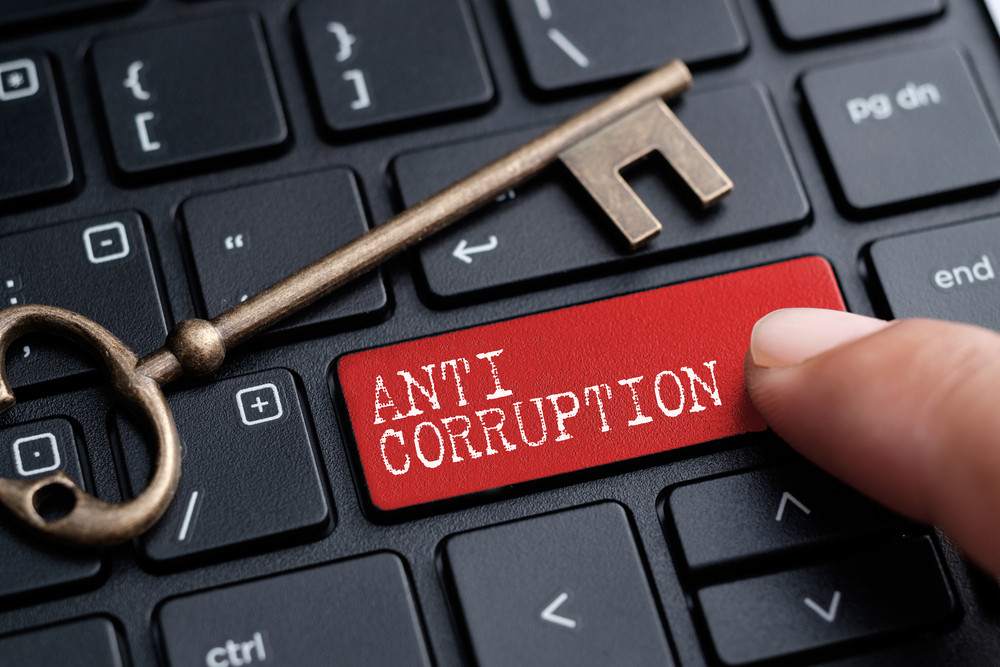Popular Reads
Top Results
Can't find what you're looking for?
View all search resultsPopular Reads
Top Results
Can't find what you're looking for?
View all search resultsMLA deals no guarantee of asset recovery: Observers
Domestic law enforcement needs a lot of improvement before such deals can be effective.
Change text size
Gift Premium Articles
to Anyone
T
he government’s recent signing of a mutual legal assistance (MLA) agreement with Switzerland has been hailed by some as a step forward in the fight against graft.
However, activists and experts have been less complimentary, saying that domestic law enforcement needs a lot of improvement before such deals can be effective.
Law and Human Rights Minister Yasonna Laoly signed the agreement in Bern last week, after two rounds of negotiations in 2015 and 2017. The Indonesian Embassy in Switzerland said in a statement that the agreement “regulates legal assistance of tracking, freezing, confiscation and forfeiture of assets resulting from criminal acts.”
The agreement is the 10th such deal signed by the government, after previously signing MLA agreements with ASEAN member nations, Australia, Hong Kong, China, South Korea, India, Vietnam and the United Arab Emirates.
The Corruption Eradication Commission (KPK) welcomed the signing of the treaty, saying that it would help reduce room for graft perpetrators to maneuver.
“The increasing number of international regulations will narrow the room for criminals to hide proceeds from crimes and other evidence,” KPK spokesperson Febri Diansyah said in a statement.
The campaign team for President Joko “Jokowi” Widodo’s reelection bid was also quick to call the agreement another achievement in the Jokowi administration’s fight against corruption.
“The MLA [agreement] allows law enforcement regarding white collar crime such as corruption, money laundering, tax evasion and others to be more effective,” Indonesian Democratic Party of Struggle (PDI-P) lawmaker and Jokowi-Ma'ruf Amin campaign team member Eva Kusuma Sundari said recently.
However, graft watchdogs the Indonesia Corruption Watch (ICW) and Transparency International Indonesia (TII) said the MLA agreements in themselves would have little effect if Indonesian law enforcement did not use them effectively.
“What is the point of an MLA agreement if we ourselves do not have the prerequisites [to use it]?” ICW coordinator Adnan Topan Husodo said, citing the case of former president Soeharto’s son, Hutomo Mandala Putra, better known as Tommy Soeharto.
In the early 2000s, United Kingdom authorities froze a bank account containing 36 million euros (US$40.6 million) owned by Tommy’s investment company, Garnet Investments, citing suspicions that the funds were proceeds from graft. However, Indonesian law enforcement never charged Tommy with committing graft and the account was eventually unfrozen in 2011.
Adnan said that, even domestically, law enforcement rarely pursued asset recovery in graft cases, saying that of the 454 such cases handled in 2018, only seven included charges of money laundering.
“If we look at this data, it’s clear that we are hollow on the inside,” he said. “We don’t even chase after assets domestically, much less abroad.
TII secretary-general Dadang Trisasongko agreed, saying that international treaties would only be effective if domestic law enforcement already had a strong case.
“If there is already an investigation under way, even without an MLA agreement, we can pursue asset recovery through bilateral relations and the UNCAC [United Nations Convention against Corruption],” he told the Post.
Asset tracking and recovery scientist Paku Utama echoed Dadang’s comments, saying that MLA agreements were not necessary to repatriate illicit overseas funds, and that they also did not guarantee foreign governments would approve repatriation.
He added, however, that they might be useful in piercing stringent bank secrecy laws in places such as Switzerland.
The Swiss Embassy in Indonesia said Switzerland was not a “safe haven” for illicit funds and “has long pursued a proactive policy in dealing with illicit assets.”
“According to the MLA agreement, […] if the alleged conduct for which legal assistance is being requested constitutes an offense under the laws of both states, financial account information can be exchanged,” deputy head of mission Michael Cottier told the Post.
Cottier also confirmed the MLA agreement could be applied retroactively to “acts committed before its entry into force” but added that “the existence of an investigation is a vital element in order to be able to grant assistance.”
One of the most high-profile cases of attempted asset recover from Switzerland is that of former Bank Mandiri president director ECW Neloe, who was sentenced to 10 years’ imprisonment for graft in 2007. Neloe was found to have US$5.2 million in a Swiss bank account, which Indonesian authorities attempted to recover.
“The Swiss authorities assisted Indonesia from the very beginning in its efforts to seize, with the final goal of repatriation, potentially illicit funds related to the [Neloe] investigation,” Cottier said, adding that after Neloe’s death in 2015, Indonesian authorities confirmed that there was no longer a legal basis to further investigate him.
“Even the fact that the MLA agreement can be applied retroactively would not help to recover allegedly illicit funds – an investigation in Indonesia would be required,” he said.










